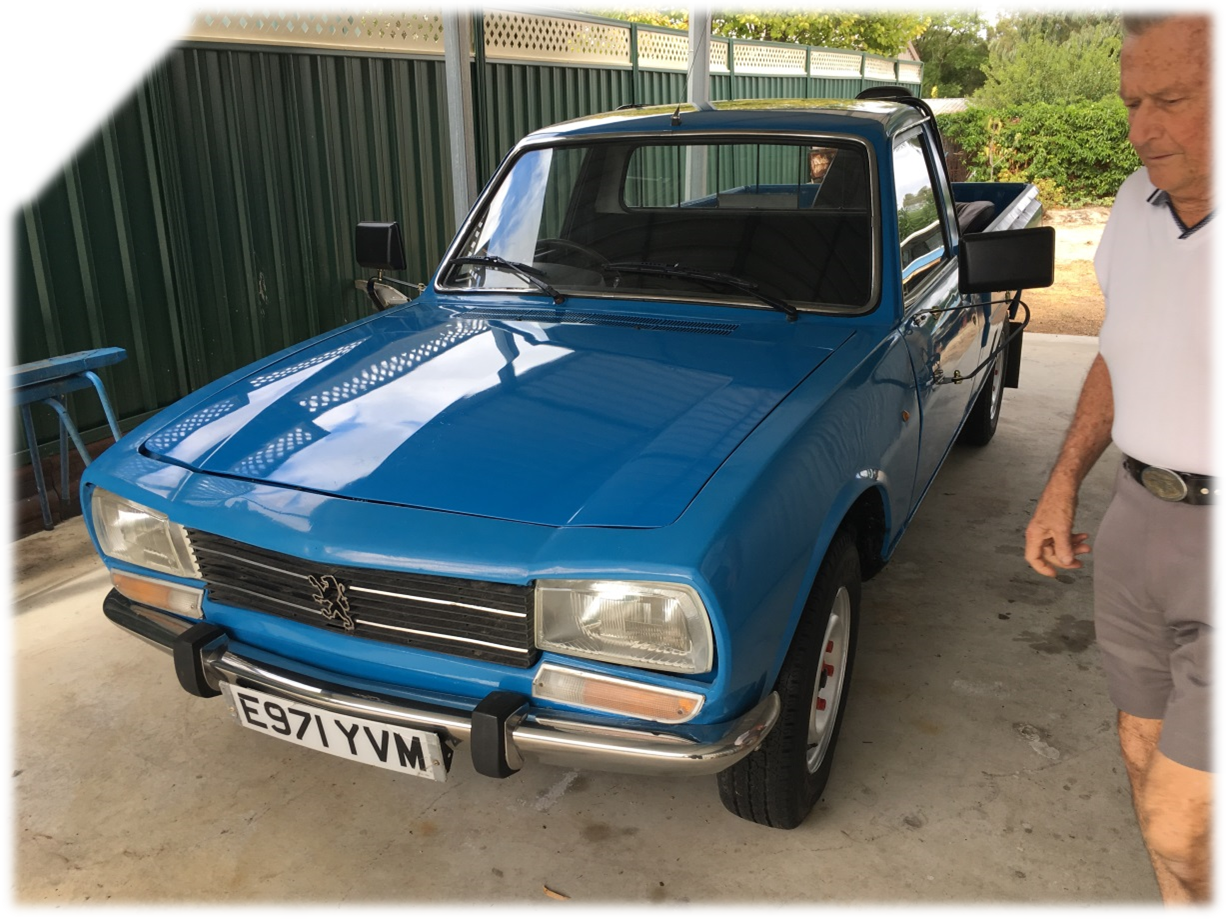Author: Mark Hort
Pickup and commercials
The 504 Pickup was introduced for the 1980 model year. The pickup used the longer wheelbase and live rear axle of the 504 Break. On introduction, it was available with very basic spec and single round headlights, fitted in plastic frames shaped like the 504’s “cat’s eyes.”
Germany’s Bimobil offered a demountable camper for the 504, French company Dangel produced Peugeot approved four-wheel drive pickup models, and Argentina produced a double cab variant.


Design
The 504 pickup was constructed with an all-steel body and boasted the longest wheelbase in its class at launch (3,000mm) and an overall length of 4,750mm and width of 1,710mm. There were independent MacPherson struts at the front and longitudinal leaf springs at the rear, and drum brakes all round.
Engine and driveline
Originally, the Peugeot 504 pickup was available with a choice of a 1.6-litre petrol (62hp/120Nm) or 1.9 diesel (49hp/108Nm). In 1983, Peugeot replaced these with a 1.8-litre petrol (81hp/135Nm) and a 2.3-litre diesel (70hp/132Nm) – the latter of which was noted for its impressive fuel economy of up to around 40mpg on the combined cycle. Early models came with just a four-speed transmission, although an extra gear was added for later models.
Loading and towing
The two-metre load length may sound respectable, but this was the shortest on the single-cab market at the time. The interior width measured 1.35 metres, giving just 2.7 square metres of usable load area.
However, the Peugeot 504 was the class leader for payload. Most variants had a 2,595kg gross vehicle weight which, minus the 1.4 and 1.5 tonne kerbweight, left between 1,100kg and 1,200kg for payload. The Peugeot 504 pickup had a maximum towing capacity of up to 1,300kg.
Post-European production
Sevel in El Palomar (near Buenos Aires, Argentina) produced sedan, estate and pickup Peugeot 504s until 1999. Manufacturing continued in Kenya until 2004, and Nigeria until 2006
.
1988 504 Pickup – Owner/Mechanic/Restorer: Gordon Hort






| Engine and transmission | |
| Engine: | Front, longitudinal, 4 cylinder |
| Capacity | 2304cc |
| Fuel system: | Diesel, Naturally Aspirated |
| Power/Max Torque: | 52kW / 131Nm |
| Drive Type: | Rear Wheel Drive |
| Transmission: | 5-Speed, limited-slip rear differential |
| Fuel Economy: | 43 miles per gallon/6.1 litres per 100kls (Empty around town)37 mpg with the tray loaded with firewood |
| Exterior and interior | |
| Seats: | Sedan Bucket Seats (replaced bench seat) |
| Body Type: | Pickup (Ute) |
| Body Colour: | French Blue (darker than original) |
| Steering, brakes and tires | |
| Turn circle: | |
| Front brakes: | Front: servo assisted front discs |
| Rear brakes: | Rear: 25cm (10”) drums at rear |
| Dimensions and weight | |
| Overall length/width: | 4.75 m (15’7”) / 1.71 m (5’7”) |
| Load Area: | 2.01 m (6’7”) x 1.50 m (4’11”) between arches 112cm (3’8”) |
| Kerb Weight (KW): | 1,400 kilograms |
| Payload: | 1,265 kilograms |
| Gross Vehicle Mass: | 2,595 kilograms |
| Towing (Braked) | 1,300 kilograms |
Vehicle History
1988 Built: Coventry, England
December 2011 Bought farm pickup in running order over the Internet (garaged in UK)
May 2012 Current owner took possession (Banbury, UK).
Travelled by “Chunnel Rail” to Calais/France, Belgium, Holland, Germany,
Denmark, Sweden, Norcape Norway, Lapland, Finland, Russia, Estonia, Latvia,
Lithuania, Poland and back through Germany and France to England covering
approximately 6,000 miles (9,656 km).
Completed a further 1,000 miles (1,609 Kilometres) in Southern England.
June 2012 Vehicle shipped from Southampton to Fremantle
2017 / 2018 Vehicle stripped and restored. Rust in subframe from salt use on icy UK roads
removed, and Rowe & Sons of Maddington Perth remanufactured two cover panels
on the rear sides plus the full length of the drivers side of the tray.
June 2018 Registered in Western Australia with copy UK plates (91,000 miles on odometer)
